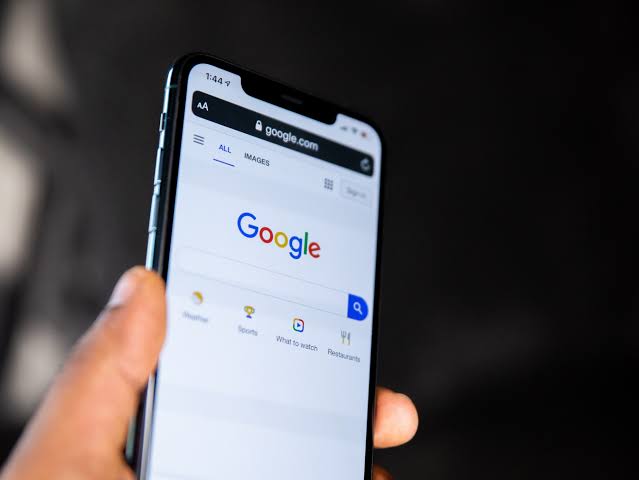When South African-based technologist Oluwabamigbe Oni speaks about artificial intelligence, he rarely lingers on buzzwords or billion-dollar valuations. Instead, his voice sharpens around a different subject: the women society refuses to listen to. Sex workers. Teenage mothers. Survivors of stigma.
“They don’t need pity,” he says. “They need tools that protect their dignity and amplify their voices.”
That conviction gave birth to Eden AI, the startup Oni founded in 2021 and has since nurtured into one of Africa’s most promising AI-for-impact ventures.
This August, as earlier reported by Techparley Africa, Eden AI unveiled BlossomCare, an AI-powered mental health companion delivered via WhatsApp, designed to provide safe, multilingual emotional support to stigmatized women across Africa.
The app, developed in partnership with Nigeria’s Blossom Girls Outreach Foundation, is already being hailed as a quiet revolution in how technology can serve communities society often marginalizes.
From Consultancy to Compassion
Oni’s career didn’t begin in mental health advocacy. A trained data scientist and AI consultant, he first built Eden AI as a solutions firm, helping African businesses adopt machine learning, computer vision, and conversational AI.
“We were solving problems, yes, but often for clients that already had options,” Oni recalls.
It was while consulting for NGOs that Oni recognized the absence of culturally relevant digital health tools, particularly in mental health. Despite Africa’s high mobile penetration, 86% of women own a phone, few services were designed with their realities in mind.
The mismatch struck Oni deeply: “If AI could write songs and trade stocks, why couldn’t it listen to a young woman in Ibadan, in her own language, when the world around her wouldn’t?”
This question set Eden AI on a new course: from corporate consultancy to building accessible, human-centred AI products.
Professional Journey and Founding of Eden AI
Oluwabamigbe Oni began his career as a data scientist and AI consultant, helping organisations adopt machine learning, analytics, and automation, but soon grew dissatisfied with solutions that mainly served privileged sectors while everyday Africans were left behind.
In 2021, that frustration inspired him to establish Eden AI, initially as a consultancy but quickly reshaped into a mission-driven startup focused on human-centred, socially relevant AI.
Guided by his recognition that Africa’s rapid mobile adoption contrasted sharply with the lack of digital tools tackling urgent issues like healthcare and mental well-being, Oni positioned Eden AI as a platform to bridge that gap and redefine how technology can serve vulnerable communities.
BlossomCare: Designing for the Silenced
Unlike most mental health platforms born in Silicon Valley, BlossomCare is resolutely African in its design. Its interface is WhatsApp, familiar, low-data, and discreet. Its languages include English, Yoruba, and Pidgin, with more local tongues planned.
Also its architecture allows for a hybrid approach: AI-driven conversations, yes, but also escalation to human counsellors, peer groups, or legal aid when needed.
For Oni, that hybrid model isn’t a technical flourish but a moral stance: “AI should never be a wall between people and real help. It should be the bridge.”
Eden AI’s internal dashboards even provide NGOs with real-time insights into engagement trends, allowing them to identify regional mental health hotspots and respond more effectively. This blend of tech and social intelligence is what sets Oni’s vision apart.
Leadership Rooted in Empathy
Colleagues describe Oni not as a typical founder chasing funding rounds, but as a leader anchored in empathy. He insists on co-designing tools with communities, often sitting with sex workers and teenage mothers to understand how they’d actually use the app.
“He doesn’t just build for us, he builds with us,” says a program lead at Blossom Girls Outreach Foundation.
This leadership style reflects a broader philosophy: that Africa’s AI revolution should not mimic Western templates, but instead grow from its social fabric.
“We cannot copy-paste solutions,” Oni often stresses. “Our pain points are different, our languages are different, our trust systems are different.”
Eden AI: The Road Ahead
Eden AI is still young, but Oni is already mapping its future beyond BlossomCare. Plans are underway for AI-driven platforms that tackle maternal health, gender-based violence reporting, and youth mental health.
The goal is not just to build apps, but to create a continental ecosystem of compassionate AI tools.
However, challenges still loom, from funding, infrastructure, and to the delicate balance of safeguarding user privacy in communities where stigma can be deadly. Oni admits the weight of this responsibility keeps him up at night.
“But if we don’t build it, who will?” he asks.
A Founder with a Different Vision
In a startup world obsessed with unicorn valuations and Silicon Valley models, Oluwabamigbe Oni is charting a quieter, more radical path, one where AI isn’t a luxury tool for the elite, but a lifeline for the marginalized.
His work through Eden AI is forcing Africa’s tech community to reconsider what progress really looks like.
As BlossomCare begins its rollout, Oni remains clear-eyed about the road ahead.
“AI is powerful, yes. But in Africa, its power should be measured not in profits, but in lives dignified and voices restored.”
Why This Matters
Eden AI’s work under Oluwabamigbe Oni matters because it redefines artificial intelligence in Africa as a tool for inclusion and social justice rather than just economic efficiency.
With over 100 million Africans facing mental health challenges but a severe shortage of professionals to support them, Eden AI’s locally grounded solutions, delivered through familiar platforms like WhatsApp and in languages such as Yoruba and Pidgin, offer a lifeline that bridges access gaps.
Analysts view Oni’s pivot from corporate consultancy to impact-driven innovation as emblematic of a growing “AI-for-impact” movement, where success is measured not by investor returns but by lives dignified and communities empowered, positioning Africa not as a passive consumer of AI but as an active shaper of its possibilities.





